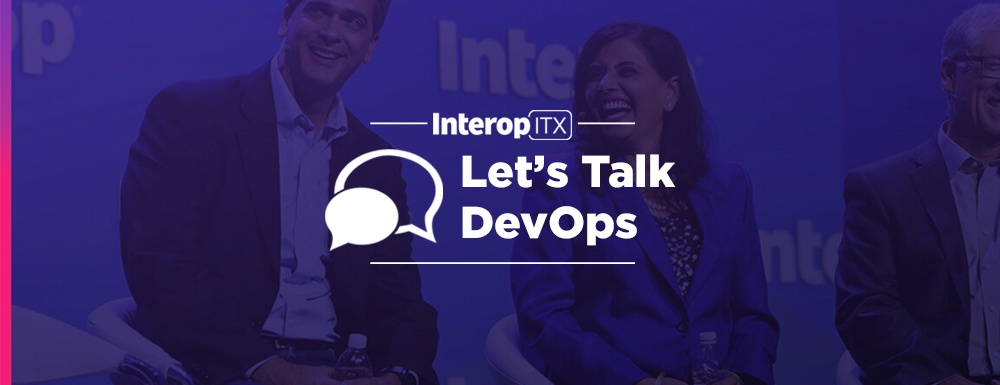Open communication is a key driver in the success of any DevOps initiative. Which is why I was excited to participate in a recent DevOps Tweet Chat hosted by the team at InformationWeek and Interop ITX.
We kicked off the discussion sharing insight on the success patterns and benefits of DevOps.
At Chef, we see DevOps success happening in large and small organizations in every industry around the world — from the largest bank in Africa, to a national media company, and at fast-growing tech companies. The collaboration and learning inside these organizations is continuous, and the benefits are impactful.
A2. Biggest benefit: Objectives are aligned and employees across the board are delivering the business outcomes. #ITXChat
— nathenharvey (@nathenharvey) March 9, 2017
We also addressed some of the biggest misconceptions about DevOps and discussed how to overcome them.
A5: biggest misconception: "DevOps is not my job!" #ITXchat
— nathenharvey (@nathenharvey) March 9, 2017
I hear “DevOps is not my job!” a lot. And you’re right — DevOps is not a single person’s job. And it shouldn’t be. DevOps should be a part of everyone’s job. If you’re focused on improving your workflows, collaborating more with other teams, learning from failure, and driving more successful business outcomes, you’re practicing DevOps, regardless of your job title or place on an org chart.
The group was also eager to discuss how emerging technologies like containers and cloud fit into a DevOps strategy. My response, which may come as a surprise, is that NO TECHNOLOGY MATTERS. What does matter is what workflow changes the technology supports, and the outcomes those changes help us achieve. Specific technologies will fall in and out of favor. Do not select a technology because someone else is using it. Select technologies that will reinforce and amplify the workflow, culture, and outcomes you seek.
Containers matter if they help you move change more quickly and safely through your organization AND if the applications wrapped in those containers are more operable.
Cloud matters if it enables new workflows like more automation, shorter-lived instances, and new disaster recovery plans. Adopting cloud without changing the approach will fail.
A8: Ask "why?" not "what?". #cloud gives you dynamic infrastructure. that can help you move faster. #ITXchat
— nathenharvey (@nathenharvey) March 9, 2017
We closed the chat on a very important topic that’s near and dear to my heart and our community: training! My view in a nutshell:
A10. Learning is more important than training. Encourage a culture of learning, measurement, and experimentation. #ITXchat
— nathenharvey (@nathenharvey) March 9, 2017
And this culture of continuous learning should extend across functions. If you try and adopt DevOps and are only looking at “dev” and “ops,” it will fail. Other departments can and should learn from failure, focus on outcomes, automate their workflows, and embrace diversity.
We’re excited to continue the DevOps conversation at Interop ITX in May. We have three awesome Chef sessions lined up — be sure to check them out!
- Monday, May 15 from 1:00 – 1:45pm, Chef’s JJ Asghar will speak at the Container Crash Course on Working with Chef Containers.
- Monday, May 15, from 3:00 – 3:30pm, I will join the InformationWeek IT Leadership Summit to present The Path to Next-Generation DevOps: What Really Works. I’ll explore success factors employed by organizations on the leading edge of DevOps and share how you can get there too.
- Tuesday, May 16 from 9:00am – 12:00pm, Chef’s Michael Goetz and I will host a workshop on Defining DevOps Metrics. This will be an interactive session covering key outcomes that a DevOps transition can deliver: speed, efficiency, risk and community. You’ll leave the workshop with metrics and a plan you can put in place to start tracking your DevOps transition.
We hope to see you there!


